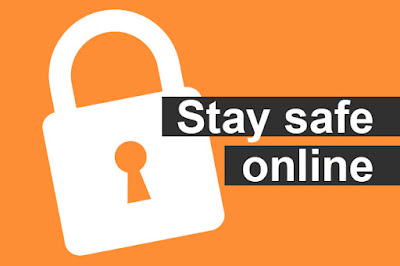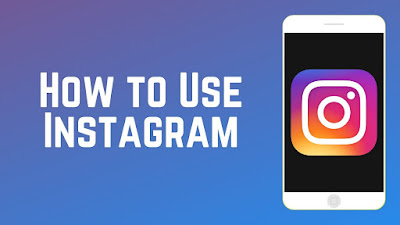How to stay safe online?
Secure your details against the highly common internet
dangers by applying some important security measures. Thus, you can stay safe online.
Our privacy online is something we must all care about – in specific,
what data we're disclosing about ourselves without experiencing it. To stay safe online you need to be very
careful.
Suppose you're not performing anything unlawful, there's
nothing incorrect inherently with safeguarding your browsing habits and personal
information. Privacy isn't just a problem for celebrities.
It's far much likely that your privacy is adjusted by
advertising agencies than anyone else. From a simple search in Google, to
pretty much any ad-funded portal your behavior of browsing can be tracked to develop
which advertisements you're most wanted to click on.
Luckily, there are lots of ways to stop this monitoring.
We'll display you some of the excellent alternatives, from more hardcore
solutions to simple tricks that can protect you from almost any observation.
Twitter has hacked allegedly in 2016 June, with more than 31
Million login credentials being provided for sale on the dark web. To stay safe online you can consult our
highly experienced technicians via calling our toll-free phone number
1-844-411-3453.
Despite compelling a large
number of users to reset their login passwords, Twitter has declared that data
of users has not been compromised and that what's likely to have occurred is
that people have been very irresponsible with their passwords - for example deploying
a similar password for many different websites.
A spokesperson of
Twitter informed us that "we are optimistic that these usernames and passwords
were not acquired by a data breach in Twitter – our computers have breached not
been. We've been functioning to assist carry accounts secured by examining our
data against what's been shared from other recent leaks of passwords."
If Twitter data was hacked or compromised, it surely
wouldn't be alone. A month before the hack of Twitter, 31 Million user accounts
for LinkedIn (business networking portal) were provided for sale online. A
Dropbox hack in 2016 August also leads to 67 million passwords disclosing onto
the internet.
Password Security
The first rule about carrying yourself secured online is to ensure
you have tough-to-guess passwords, which ideally will be distinct for each a website that you log in to. If you're deploying a similar password for all of
your usernames, someone could gain access to any one of your accounts, and then
he or she would be able to gain access to all of your other accounts also.
A Security specialist has offered a helpful tip to those
people who are tensed that having various complex passwords will be tough to keep
in mind.
Users must use committed password managers to remember the passwords
for them, and those can also be deployed to make hard-to-crack and distinct
passwords to improve overall security." Does not everyone know how to stay safe online?
The password manager like the KeePass saves all of your
passwords in a digital, encrypted vault that you can access with only one
master password. The vault can be saved on your PC or a drive removable such as
a USB pen drive to secure your data. When you tap or click on an entry you can
copy automatically passwords to clipboard and paste them into the box of
passwords on the portal.
How to secure
yourself online in 2020?
Keepass also equipped with a password generator that can make
complicated and highly secure passwords for your accounts.
Deploy two-step
verification
Wherever viable you must deploy two-step verification to assist
enhance the security of your login information. Two-step verification is also called
two-factor authentications make it very tough for someone to get access to
your login information by creating you have to supply 2 items of authentication
for login purposes.
The highly famous version of this involves you giving your
password, along with a code for verification that's sent to your phone. Other
methods comprise PIN codes created by a device physical. If you want to stay safe online then you need to be
very careful while surfing the web.
Not all services and websites assist two-step verification,
but an increasing number shall, so you should ensure you switch this feature on
when you can.
How to stay even more
secure online Unlike DuckDuckGo, Google doesn't carry tabs on your internet
searches?
Browsing Anonymous
Online privacy tends to create headlines with stories of
government administrations spying on its citizens or peoples. But while
surveillance state is beyond doubt, the first violation of your privacy is much
likely to come through a Google search. Although anonymous apparently, Google has
a custom of monitoring your searches to shell you with customized advertisements.
By contrast, a search engine like the DuckDuckGo makes
unbiased results of search without the inserted user tracking or profiling.
Shifting to a less commercially driven search engine will surely
assist you on the road to invisibility, but after exploring some websites
you'll inevitably get few cookies.
These small text files are generally correct legal methods
for web portals to record things, like the often viewed items, so they'll display
on your next visit. But, cookies can easily switch on you…
Tracking cookies are very prying and compile records of
personal information and browsing habits for the cookie host to aim you with particular
advertisements.
Since 2011, US law and EU have increased awareness of
cookies by needing websites to show homepage notification banners that you don't
wish to miss, but it's just a nod token at privacy respecting.
An extra promising try at carrying your browsing less
trackable is the Do Not Track HTTP header, now merged into all common internet
browsers. When activated, websites are suggested not to deploy cookies tracking.
However, the important word here is "requested",
as while Do Not Track might be excellent in theory, the attribute can't stop
advertisers and websites from monitoring you.
There's no law to speak they can't fully avoid a DNT
request, however, all sites registered in the EU should have your permission
first before saving any cookies tracking.
Slate Cleaning
The bottom line is, it's up to you to be unidentified. Just
clearing your browser cookies and cache via your settings of browser is a fantastic
beginning.
Alternatively, you can deploy clean-up software like the
CCleaner to remove temporary internet files, cookies, and various other internets
leftovers from various browsers in one go.



Comments
Post a Comment